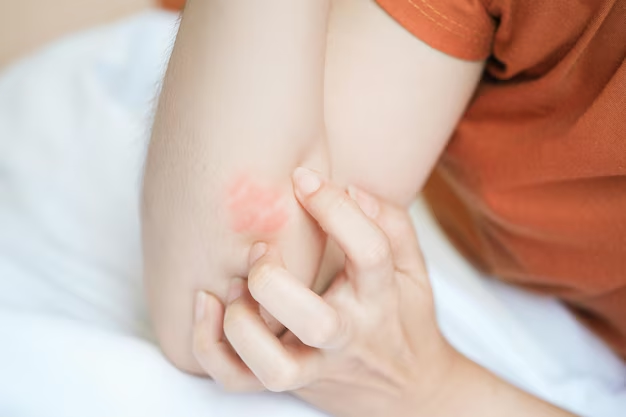How to Manage and Alleviate Eczema: Practical Steps for Healthier Skin
Eczema, characterized by itchy, inflamed patches of skin, is a common skin condition that can significantly impact one's quality of life. If you're one of the millions affected by eczema, you're likely searching for effective ways to manage or even eliminate its symptoms. While there's no cure for this chronic condition, understanding how to manage eczema effectively can lead to significant improvements in your skin health and overall well-being. Let's explore some practical strategies and insights to help you on this journey.
Understanding Eczema: What You Need to Know
Eczema, also referred to as atopic dermatitis, is not just a superficial skin issue but a complex condition influenced by genetic and environmental factors. This understanding is vital because it underscores the importance of a comprehensive approach to management—not just focusing on treating the skin but also considering lifestyle and environmental influences.
The Different Types of Eczema
Getting familiar with the different types of eczema can help in managing the condition better:
- Atopic Dermatitis: The most common form, often hereditary, usually starting in childhood.
- Contact Dermatitis: Triggered by direct contact with irritants or allergens.
- Dyshidrotic Eczema: Characterized by small, itchy blisters, usually on hands and feet.
- Nummular Eczema: Features round, coin-shaped spots on the skin.
- Seborrheic Dermatitis: Often affects oily areas of the body, like the scalp.
Common Triggers and Symptoms
Being aware of triggers can help manage eczema symptoms more effectively. Some common triggers include:
- Irritants: Soaps, detergents, and fragrances
- Allergens: Pollen, dust mites, and pet dander
- Environmental Factors: Cold, dry weather or extreme heat
- Stress: Emotional stress can exacerbate symptoms
Symptoms typically include:
- Itching
- Redness and inflammation
- Dry, sensitive skin
- Flare-ups resulting in rough patches
Effective Strategies for Managing Eczema
While managing eczema requires a personalized approach based on individual triggers and skin type, several universal practices can help reduce flair and improve comfort.
Essential Skincare Routine
Adopting a consistent skincare routine is crucial in managing eczema:
- Moisturize Regularly: Keeping skin hydrated is essential. Choose a thick, fragrance-free moisturizer and apply it after bathing while the skin is damp.
- Gentle Cleansing: Use mild, soap-free cleansers to avoid stripping the skin's natural oils.
- Bathe Wisely: Take short, lukewarm showers or baths and gently pat your skin dry instead of rubbing.
Lifestyle and Dietary Considerations
Certain lifestyle modifications can have a significant impact on eczema:
- Wear Comfortable Clothing: Opt for soft, breathable fabrics like cotton and avoid wool or synthetic materials that can irritate the skin.
- Stay Hydrated: Keeping your body hydrated benefits your skin from the inside out.
- Consider Your Diet: Some individuals find relief by avoiding specific foods that may trigger inflammation, such as dairy or gluten.
Home Remedies and Natural Treatments
For those seeking natural alternatives, a few simple home remedies may provide relief:
- Oatmeal Baths: Colloidal oatmeal can soothe irritation and reduce itching.
- Coconut Oil: Known for its antimicrobial properties, coconut oil can be a beneficial moisturizer.
- Aloe Vera: Known for its soothing properties, aloe vera gel can help calm inflamed skin.
Exploring Professional Treatments
When over-the-counter approaches aren’t enough, professional treatments might offer relief:
Topical Treatments
- Corticosteroid Creams: Often prescribed by doctors to reduce inflammation and itching.
- Calcineurin Inhibitors: These creams help suppress the skin's immune response to reduce eczema flare-ups.
- Antibiotics: Sometimes necessary if the skin becomes infected.
Advanced Therapies
- Phototherapy: Light therapy can help reduce itching and inflammation for some eczema sufferers.
- Biologics: These are advanced injectable medications that target specific parts of the immune system.
Seeking Professional Guidance
If symptoms persist or significantly impact your life, consult a healthcare provider. They can offer tailored treatments, monitor your progress, and adjust your management plan as needed.
Self-Care Tips for Living with Eczema
Living with eczema requires ongoing self-care and mindfulness:
- Stay Informed: Educate yourself about your condition and stay updated on new research and treatments.
- Build a Support Network: Engage with support groups or online communities to share experiences and advice.
- Practice Stress Management: Techniques such as yoga, meditation, or breathing exercises can help manage stress levels, potentially reducing flare-ups.
Key Takeaway: Eczema management involves a multifaceted approach that includes skincare, lifestyle adjustments, and possibly professional treatments. Being proactive about identifying triggers and maintaining healthy habits can significantly mitigate symptoms.
Summary of Eczema Management
- Hydrate Routinely: 🌊 Apply moisturizer liberally and often.
- Gentle Cleansing: 🛁 Use mild soaps and warm water.
- Identify Triggers: 🔍 Know and avoid your specific irritants.
- Seek Professional Help: 🩺 Don’t hesitate to consult healthcare providers if symptoms persist.
- Stress Less: 🧘 Practice relaxation techniques to manage stress.

